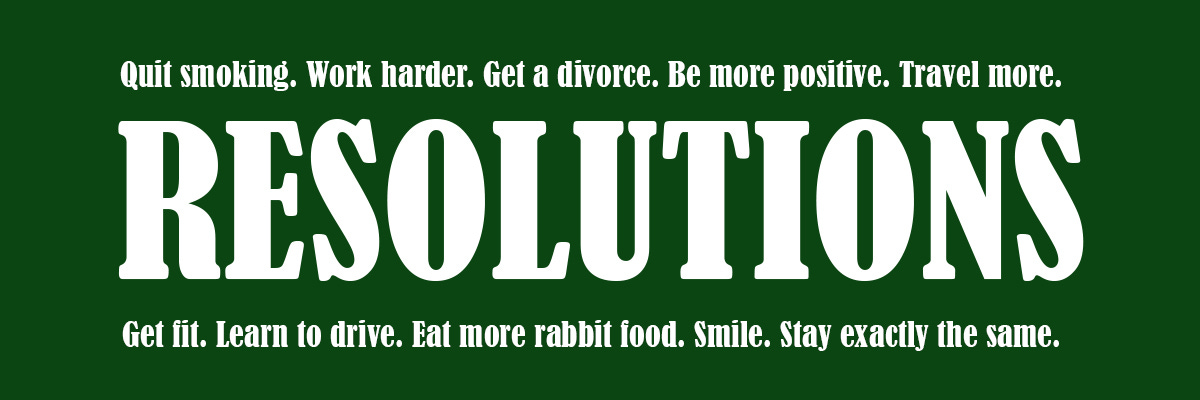“Walk down the street of any city, any afternoon, and look around you. What you've got to remember is what you're looking at is also you. Everyone you're looking at is also you. You could be that person. You could be that monster, you could be that cop. And you have to decide, in yourself, not to be.” James Baldwin.
The practice of making new year’s resolutions dates back thousands of years with the earliest recorded instances of same being ancient Babylon (1) where the Babylonians, during a twelve-day festival called Akitu, which was around the time they planted spring crops, made promises to the gods to repay debts and return borrowed items, and they believed this would lead to good things for them in the year ahead. Making resolutions was a practice later adopted by the Romans and in 46 BC, Julius Caesar made January 1st the beginning of the new year. January is named after Janus, a two-faced god that looked backwards and forwards simultaneously. The Romans made sacrifices to Janus and promised to comport themselves in a proper manner in the year ahead (1). The tradition of making new year’s resolutions is commonplace right up to the modern day, and, as we all know, most of these are not maintained as it is quite difficult to change oneself for the better. According to the website worldmetrics.org, only about 8% of individuals stick to their resolutions with 40% of people giving up on them before the end of January.
In his dialogue “What is Man?”, Mark Twain presents a conversation between an old man and a young man. The old man explains to the young man, through analogy, that you cannot extract something from something that is not there, and the young man becomes a little despondent that it is thus impossible to change for the better. But the old man provides a glimmer of hope that it is possible to change to some degree but that to do so requires changing one’s associations. And so, if one wants to get a handle on problem drinking, one must stop hanging around people that drink, but that can get very lonely if all of one’s friends are drinkers and so without making new friends the likelihood is that the problem drinker will slip back into old familiar habits when the cold chill of loneliness becomes too much to bear. There is comfort in familiarity, even if that which is familiar is extremely toxic. Bad habits are rooted in routine, social interactions, brainwashing by the media, and a desire to belong to something which is bigger than ourselves. Carrying on with things as they are is much easier, in the short term, than affecting positive change in one’s life that will reap positive benefits long term. As suggested by Mark Twain’s story, the capacity for change lies in the changing of the social environment one moves in. If one wants to build a strong physique with weight lifting, one will thus benefit from being associated with other weight lifters who share the same goal, who will push one along one’s bad days and from whom one will learn useful information and ideas to help one on one’s way to having the physique that one wants. Conversely, if you associate with people who never do anything but ridicule people from their barstool, then all you will ever be is a ball of negativity that is less pleasant to be around than you might be with more positive associations.
Keep reading with a 7-day free trial
Subscribe to Richard Peyton’s One Day to keep reading this post and get 7 days of free access to the full post archives.


